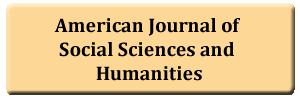Examining impact of metacognitive interventions on self-efficacy of higher secondary school students: A quasi-experimental study
DOI:
https://doi.org/10.55284/ajel.v9i2.1171Keywords:
General self-efficacy, Higher secondary school students, Metacognition, Metacognitive interventions, Self-efficacy, Social self-efficacy.Abstract
This study examines the the impact of metacognitive interventions on self-efficacy of higher secondary school students. Metacognition and self-efficacy are critical factors in educational psychology influencing that influence students’ academic performance and entire learning experience. Metacognition is the knowledge and control of one’s cognitive processes. Understanding and improving these components can result in better educational achievements and personal development for children. Inextricably linked, metacognition and self-efficacy significantly influence each other. In the present study, an attempt was made to examine the impact of metacognitive interventions on self-efficacy of higher secondary school students. The study used a non-equivalent control group design for quasi-experimental research. The study randomly selected two government-aided higher secondary schools from the Sambalpur locality. The treatment was assigned randomly, where the experimental group students (n=41) were taught using metacognitive interventions, i.e., thinking aloud, brainstorming, concept mapping, and self-assessment, and the control group students (n=38) were taught by following the traditional approach. The self-efficacy scale of Scherer and Maddux was culturally adapted and used. The collected data was analysed with the help of Analysis of Covariance. The study’s findings demonstrated that metacognitive treatments had a considerable favourable influence on higher secondary school students’ general and social self-efficacy. There was no significant interaction effect of teaching technique, gender, and caste on student self-efficacy. The current study has implications for policymakers seeking to include metacognitive components in curriculum, teaching, and evaluation.



